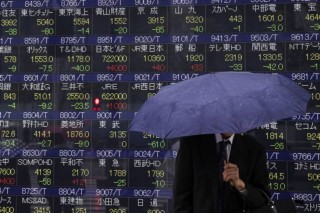Loading
Search
▼ Japan's Cabinet Approves Tougher Rules On Foreigners Owning Stocks Tied To National Security
- Category:Other
Prime Minister Shinzo Abe’s Cabinet on Friday approved draft legislation to impose tougher rules on foreign investment in stocks related to national security despite opposition from market participants.
The planned rules will require overseas investors to report in advance when they plan to buy more than 1 percent of shares in companies related to Japan’s national security, compared with the current 10 percent threshold, according to the finance ministry. The government aims to gain passage of the revised bill outlining the rules during the current parliamentary session.
To reduce the potential negative impact of the rules, the government plans to exempt foreign investors from reporting in advance provided they have no intention of influencing corporate decisions.
Some market participants have complained that the planned rules could serve as an impediment to investment. They have also criticized the lack of clarity on how, if enforced, the new rules will be implemented and which investments would be subject to exemptions.
“The implementation of the new regulation as currently proposed could have a substantial negative impact on the Japanese stock market,” Goldman strategists including Kathy Matsui, a renowned voice in Japan’s markets, wrote in an Oct. 16 note. “There is a risk that the new regulations could deter foreign investor participation, causing a decline in market liquidity.”
Under the new rule, foreign investors, who account for about 70 percent of the local stock-trading volumes, will face the “additional burden of time, expenses and legal risks,” the Goldman strategists said. This, in turn, would raise the risk premium of investing in Japan, they said.
“The most critical issue in our view will be what exemptions are ultimately made,” according to Goldman. While portfolio investments will not be subject to the stricter rules, the exact definition of what would fall into that category “remains unclear,” the analysts said.
The Nikkei Asian Review reported on Thursday that the government plans to exclude asset-management companies, including hedge funds, from the rule. The newspaper didn’t cite any sourcing.
The U.S. bank isn’t alone in warning that the move could undermine Prime Minister Shinzo Abe’s efforts to promote investment from abroad and shareholder engagement. Abe’s administration introduced the stewardship code in 2014 followed by the corporate governance code in 2015.
“There is a significant risk that Japan’s inward FDI (foreign direct investment) could decline,” the Goldman team wrote. “Not only would this impede firms’ ability to raise capital, but this could also undermine seven years of positive momentum in market reforms.”
The planned rules will require overseas investors to report in advance when they plan to buy more than 1 percent of shares in companies related to Japan’s national security, compared with the current 10 percent threshold, according to the finance ministry. The government aims to gain passage of the revised bill outlining the rules during the current parliamentary session.
To reduce the potential negative impact of the rules, the government plans to exempt foreign investors from reporting in advance provided they have no intention of influencing corporate decisions.
Some market participants have complained that the planned rules could serve as an impediment to investment. They have also criticized the lack of clarity on how, if enforced, the new rules will be implemented and which investments would be subject to exemptions.
“The implementation of the new regulation as currently proposed could have a substantial negative impact on the Japanese stock market,” Goldman strategists including Kathy Matsui, a renowned voice in Japan’s markets, wrote in an Oct. 16 note. “There is a risk that the new regulations could deter foreign investor participation, causing a decline in market liquidity.”
Under the new rule, foreign investors, who account for about 70 percent of the local stock-trading volumes, will face the “additional burden of time, expenses and legal risks,” the Goldman strategists said. This, in turn, would raise the risk premium of investing in Japan, they said.
“The most critical issue in our view will be what exemptions are ultimately made,” according to Goldman. While portfolio investments will not be subject to the stricter rules, the exact definition of what would fall into that category “remains unclear,” the analysts said.
The Nikkei Asian Review reported on Thursday that the government plans to exclude asset-management companies, including hedge funds, from the rule. The newspaper didn’t cite any sourcing.
The U.S. bank isn’t alone in warning that the move could undermine Prime Minister Shinzo Abe’s efforts to promote investment from abroad and shareholder engagement. Abe’s administration introduced the stewardship code in 2014 followed by the corporate governance code in 2015.
“There is a significant risk that Japan’s inward FDI (foreign direct investment) could decline,” the Goldman team wrote. “Not only would this impede firms’ ability to raise capital, but this could also undermine seven years of positive momentum in market reforms.”
- October 18, 2019
- Comment (0)
- Trackback(0)


